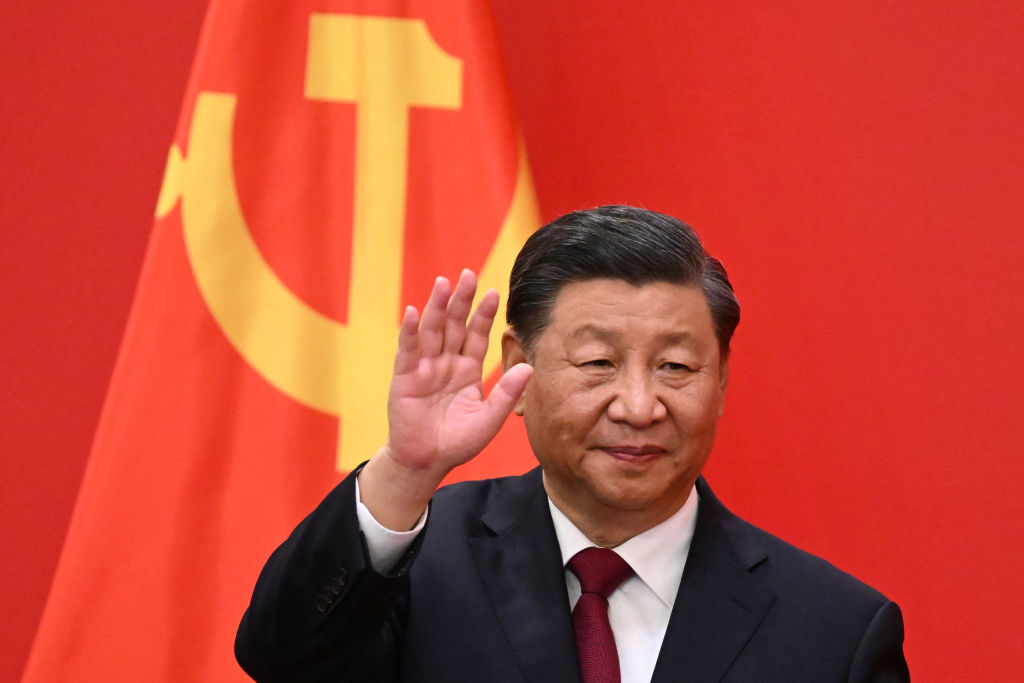When China’s President Xi Jinping named his new leadership team this month, there was one striking omission. For the first time in a quarter-century, not a single woman was on the 24-member team known as the Politburo that comprises the most senior members of the Chinese Community Party (CCP).
Just eight women have served on China’s Politburo, and several of those were the wives of top leaders. Despite Mao Zedong’s famous remark that “women hold up half the sky”, none has ever made it onto the seven-member top committee that was also announced this month.
Many China-watchers had expected the CCP to replace the sole female Politburo member, Sun Chunlan, with another woman when she retired this year. Its failure to do so is a cause for concern in a country that enshrines gender equality in its constitution, but has repeatedly cracked down on feminist movements.
We asked Dr. Leta Hong Fincher, author of Betraying Big Brother: The Feminist Awakening in China and Leftover Women: The Resurgence of Gender Inequality in China, for her views. Her comments have been edited for clarity and length.
Were you surprised there were no women named to the Politburo?
No, that doesn’t surprise me at all. To me, it’s an incredibly clear pattern. And I mean, it wasn’t that clear to me in the beginning… In the first few years [of studying this issue], I would not have said that I believe the all-male rulers of China intend to keep women down. But that is what I believe now, and I’ve been writing that for quite a few years… People who are surprised have just not been paying attention.
So how have attitudes to feminism evolved under the CCP?
In the very early years, feminism was incredibly vibrant. The early Communists, including Mao Zedong himself, basically said that feminism is a key part of the Communist revolution.
There is an incredibly rich history of feminism in communist activism in China… all the way through the end of the Mao era and after his death, and even in the early years under Deng Xiaoping.
Then after 1989, you started to see gender inequality come back again … I wrote about one very notable turning point, which was 2007, when the Chinese government unrolled a propaganda campaign with this new term “leftover women” to describe unmarried women over the age of 27… The goal of that propaganda … was to target this new trend of more educated women in China, because as women became more educated in China, they naturally began to defer marriage and child-rearing. So the Communist Party was already identifying the high educational attainment of women not as something to be really applauded and celebrated, but as a kind of threat, because those women didn’t want to get married as early and have children, which became a bigger demographic problem.
What does this mean for women in China?
There are many more barriers for young women applying to universities today, there is a lot more gender discrimination against young women applying for jobs, a lot more discrimination against women in the Communist Party apparatus itself, which is what you see reflected in the new make-up of the 20th Party Congress.
Under this new paradigm, under Xi Jinping’s one-man rule, gender equality is a threat… Everything he’s been saying publicly has indicated that he doesn’t see women as an important part of China’s economy. On the contrary, women’s place is in the home. And we’re going to see much more of that. I mean, it’s very ominous.
Actually, I believe that trend was already kind of in place even before Xi Jinping came to power. Because China’s not a democracy, their legitimacy fundamentally is about political stability. And if you see women rejecting marriage and child rearing, rejecting the traditional roles, that can undermine social and political stability itself. Because that just leads to chaos in the eyes of Xi Jinping and in the eyes of previous Communist leaders as well.
I wrote about the jailing of five feminist activists in 2015. And that was because they were perceived to be a dire threat to social and political stability in China. And in the last few years, there’s been more and more extreme rhetoric, depicting feminist activists in China as being hostile, anti-China… and therefore subversive.
You see it on social media, where feminist content is widely censored. Feminist activists themselves are very closely surveilled and harassed, sometimes jailed. Feminist terms are routinely just banned on social media. You can’t have a thriving social movement in this incredibly authoritarian atmosphere.
What is possible is for individuals, and women in particular, to reject marriage or to reject having children. Those choices, added up, become a powerful force that very broadly is seen as a threat to Communist Party survival. There are also young men who are saying that they don’t want to marry or have children. But it is more of a kind of awakening on the part of women, because women are second-class citizens in China.
So it sounds like these efforts to influence behavior aren’t really working?
I mean there is no way that Xi Jinping himself and the Communist Party is going to be able to force women into marriage, and to force them to have children. Which is why another thing that we unfortunately have to pay attention to is the possibility of more restrictions on abortion in China… There’s a little bit more rhetoric about how the government needs to, quote unquote, reduce unnecessary abortions. Well, what are unnecessary abortions? There hasn’t been a nationwide announcement restricting abortion yet. But I have to say, I’m not optimistic at all. It’s really quite frightening.



